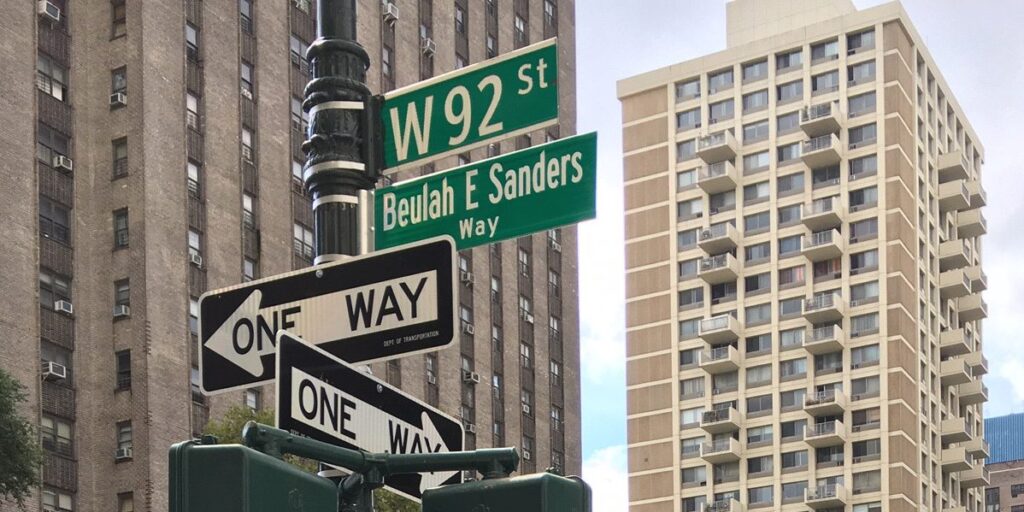
In 1970 when a US Senator suggested that New York City save money by putting poor women to work cleaning the streets, Beulah Sanders replied, “I would be the first welfare recipient to volunteer to clean up New York’s streets if your mother and your wife were beside me.” Sanders was among the leadership of the National Welfare Rights Organization (NWRO), the nation’s largest organization of poor people,((At its height in 1971 NWRO was composed of 800 affiliated welfare rights groups in fifty states (Guida West, National Welfare Rights Organization: The Social Protest of Poor Women, p. 51-2). Membership was limited to poor people, with rules prohibiting more than 10% of the membership being people living above the poverty threshold, and voting rights were extended only to recipients of welfare or social security. It was founded not as a “civil rights movement,” but as a “human rights movement” (West, 44). Among the features that distinguished it as a human rights movement was its emphasis that poverty was not limited to a particular race or ethnic group. Although the membership was 85% black, its leadership insisted that their base was all poor people and that the majority of the poor in the US were white. Johnnie Tillmon, the first national chairwoman, said that the unity among the poor across racial lines would “shake” the power structure. (West, 44). Because of the emphasis on AFDC, a program that served women and children, there were few men among the membership, although the understanding of the leadership was that their base was all poor people, which included men. Within the movement they referred to themselves as “welfare mothers” and their work as “motherpower.” As NWRO developed its relationship with the women’s movement, Tillmon famously told the National Organization of Women that “every woman is one man away from welfare” (West, 47).)) and served as its chairwoman from 1972 to 1974.
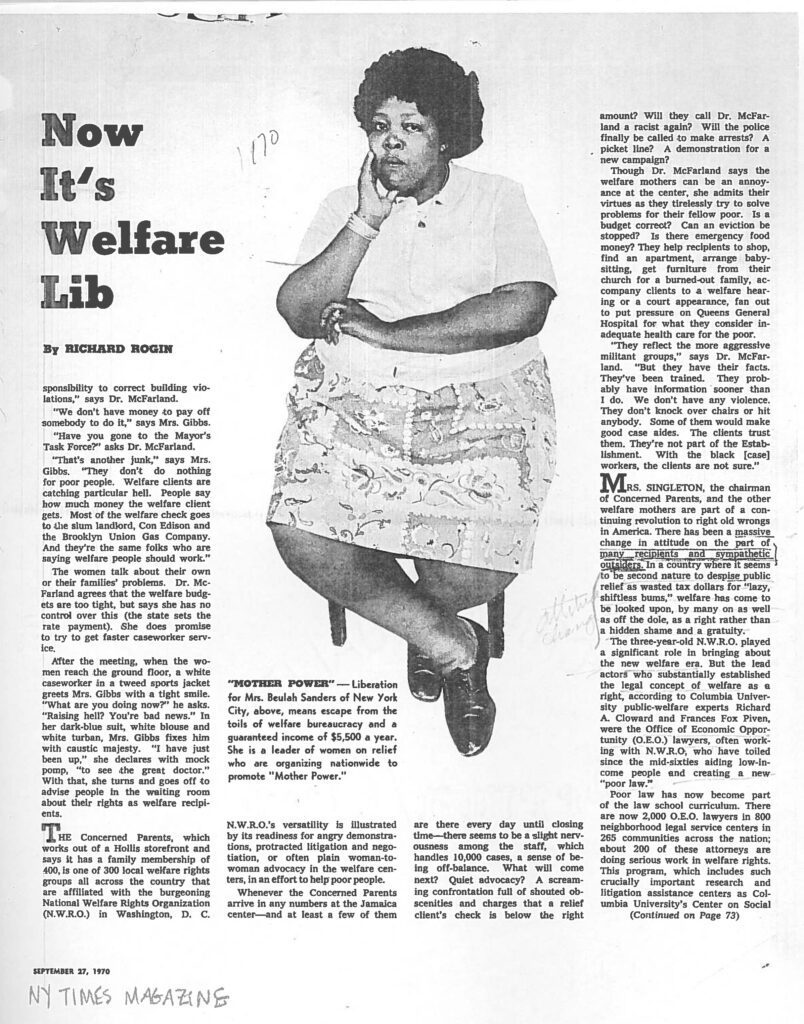
In 1972 Sanders spoke to the National Council of Churches, saying, “I represent all of those poor people who are on welfare and many who are not,… people who believe in the Christian way of life…people whose nickels and dimes and quarters have built the Christian churches of America. Because we believe in Christianity, we have continued to support the Christian churches. And I am saying to you here and now that we fully expect the Christian chur
ches to support us.” ((Beulah Sanders, “Speech to NCC, Houston, Dec 1972,” Guida West Papers, Smith College Archives, Box 11, folder 1, transcript.))
The church support she spoke of was not soup kitchens and mission trips but resisting the scapegoating of the poor. “We expect the churches to spread the truth about the welfare problems in this country. We expect the churches and their members to oppose local, state and federal legislation that oppresses poor people, Black people, Chicano people, Indian people, Puerto Rican people and all other people.” And the support she spoke of included churches joining forces with the organizations of the poor. “We call upon you…to join with us in the National Welfare Rights Organization. We ask for your moral, personal, and financial support in this battle for bread, dignity and justice for all of our people. If we fail in our struggle, Christianity will have failed.”((Ibid.))
Rarely does the church talk in these terms about poverty and rarer still is the church listening to the leadership of the poor as exhibited by Sanders and NWRO. Most often churches respond with charity, and even our social justice committees fall short realizing what Sanders does: the church belongs to the poor. Like the earliest gatherings of Jesus followers, the focus and leadership of the church can and should be the poor.
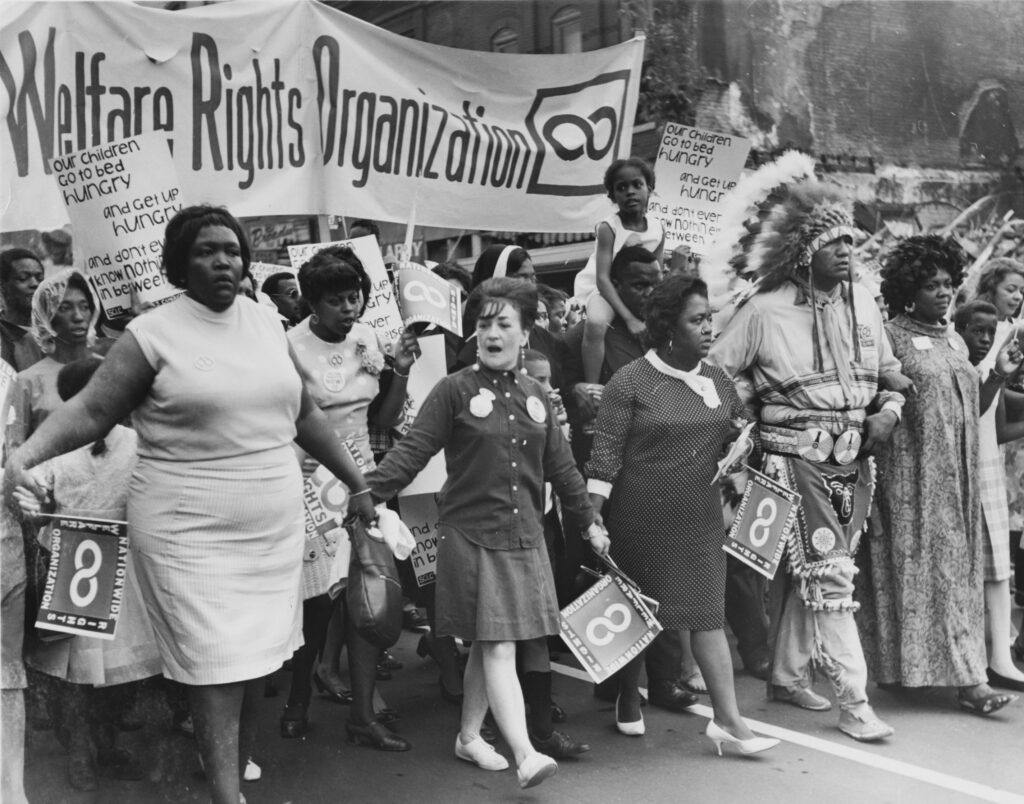
Sanders shared with the National Council of Churches her critique of the sexism and racism of the wage system. “Is it fair to call a woman lazy who stays at home, cooks, washes, irons, cleans house, teaches her kids how to do things, and helps them with their homework? If she does the same work for somebody else for $2.00 or less an hour is she really a better woman? You tell me. Let’s remember two things. Seven million children need a few million people to look after them, and for most of those children their mother is the best and only available person.”((Ibid.))
Sanders took time with the National Council of Churches to further frame the wage system historically and economically, because she knew that despite being fundamental to the lives of congregations and congregants, churches hadn’t learned this history or integrated it into their theology and mission. And because we still fail to do that, it’s worth quoting her at length today.
She started by observing the historical development of capitalism in the United States, including its manipulation of the poor along racial and ethnic lines.
“This country was discovered and founded by poor people who had been rejected by the rulers of their countries for religious and financial reasons. Most of them came here from the jails of Europe. Many of them were indentured slaves. Not black men and women but white. They worked for years to earn their freedom. Later came the lndian slaves and the black slaves. Still later came the Chinese, Filipino, Japanese and Mexican immigrations by those seeking cheap labor. On the East Coast we imported the Irish, the Italians, the Germans, the Slavs, and Negroes from the South as cheap labor and strike breakers. We still import some of these in order to get cheap domestic or migrant labor.
“Our way of life has been built on making sure that we have a large number of poor people who are desperate enough to work for barely enough to keep body and soul alive, and another group behind them who have even less and must rely on the goodness and kindness of the affluent. Thus we continue to guarantee both poverty and cheap labor.”
She continued her argument by saying the evolution of the wage system makes individual alternatives impossible. Gone were the days of yeoman farming for poor white families or the always elusive 40 acres and a mule for poor Black families. Instead, “All of our land belongs to somebody who demands a fortune for its use or purchase. Somebody else decides whether or not the factory will be opened or closed and whether or not you will be allowed to work there. The conditions of life have changed. The rules, the ethics, must also change.”((Ibid.))
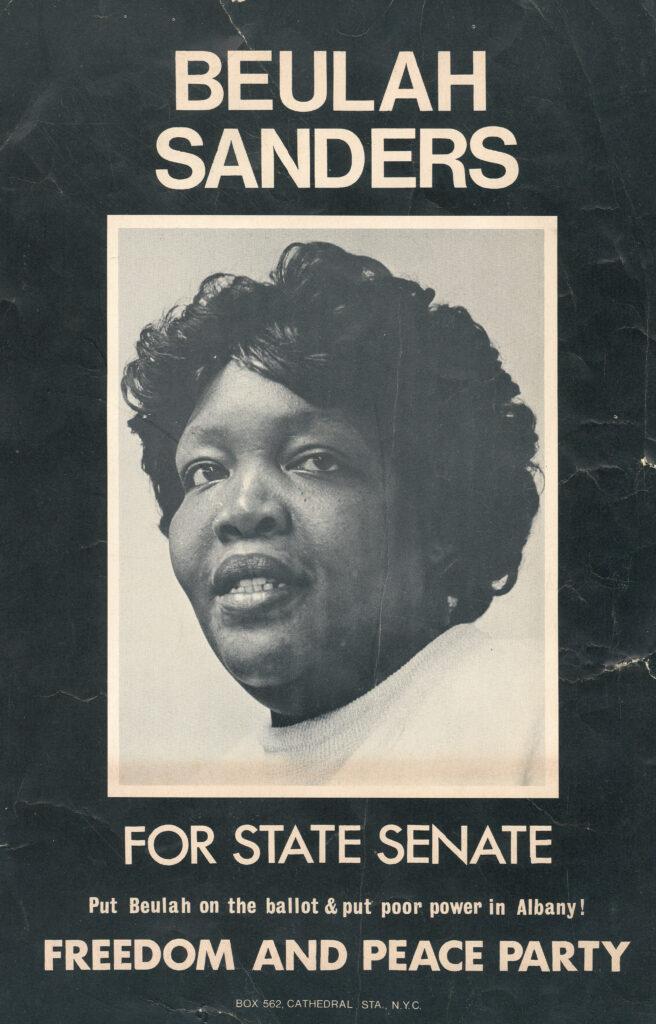
From 1966 to 1975 NWRO did take on changing both the rules and the ethics of the wage system. They fought against the shift to workfare legislation that required poor mothers work to receive welfare. And by organizing the poor and taking on leadership roles as the poor, they challenged the malicious portrayal of the poor as being poor by their own failures or incompetencies. From 1966 to 1975 they reshaped the food stamp program, made the welfare application process more accountable, and expanded programs available to poor women and children.((Guida West, National Welfare Rights Organization: The Social Protest of Poor Women, 6.)) But the US economy was at turning point, one that contributed to the downfall of NWRO at the very moment when the leadership of the organized the poor was becoming even more important.
While the midcentury expanding economy could accommodate, up to a certain point, the welfare demands of the poor, as the economy changed those programs contracted. Welfare recipients were increasingly scapegoated for the declining living standards that were actually due to the break in the relationship of wages and productivity. The poor, especially welfare recipients and the growing homeless population, were cast as the cause of stagnating wages. They were isolated as a marginalized “underclass” rather than more accurately understood as an integral component of an expanding poor, now making up nearly half of the US population.((“The Souls of Poor Folk: Auditing America Fifty Years After the Poor People’s Campaign,” April 2018.))
NWRO leader Marian Kramer, now the chair of the National Welfare Rights Union, said of their work in the 60s and early 70s, “We made a difference through our organized struggle to change the welfare department. We got jobs, education, etc. But now we are no longer needed to produce. We have witnessed production shift from manufacturing to electronics. Our country can produce for the world, and yet we have homelessness, hunger, and unemployment.”((“Which Way Welfare Rights.”))
NWRO leaders had perceived the changing economic and political conditions and began turning towards an organizing drive in the South, seeing that region’s strategic importance for a truly national movement. And they were expanding the conception of their base to more intentionally include the working poor.
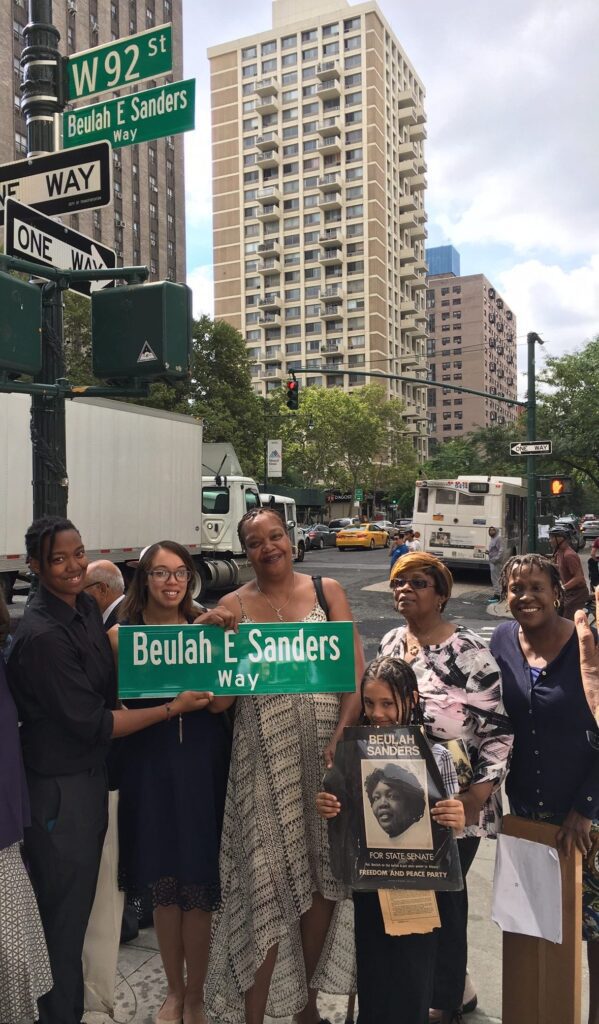
But as these economic and political shifts made it more critical than ever to be organizing the poor to change the “rules and the ethics” of the wage system, the same factors detracted their funding sources away from the right to welfare. Johnnie Tillmon, the first chairwoman of NWRO, had long advocated for their funding source to be the poor themselves, arguing that just fifty cents from poor person in the country would have made them financially independent. But this had not been implemented when their largest donors–mainline Christian denominations–took their resources elsewhere, leaving the national office $100,000 in debt. NWRO declared bankruptcy and ceased to exist as a national organization in 1975.((West, 35-6.))
Today their work lives on in the National Welfare Rights Union and its state chapters. It lives on in organizations of the poor that do not call themselves welfare rights organizations but which are organizing the poor as a social force to move the nation, including Chaplains on the Harbor, Put People First-PA, the National Union of the Homeless, and Raise Up for $15. In the words of Michigan Welfare Rights’ Maureen Taylor, the economic conditions have pushed the struggle for the right to welfare to expand to the fight for “the right to fare well,” which includes the right to water, the right to housing, the right to healthcare, the right to living wages and a union, and the right to be free from police violence and mass incarceration.
Answering Sanders’ call to churches nearly fifty years later, faith leadership in these organizations is emerging in many forms — ordained and lay, established denominations and independent ministries. What they share in common across these differences is a commitment to the abolition of poverty and racism through organization of the poor, rather than advocacy on behalf of the poor. They are allowing themselves, their theology and their ministries to be impacted by the “conditions of life” that Sanders insisted we make part of how we are church. And following her call, they are taking part in responding to the conditions that violate our human rights by changing “the rules and the ethics” that those violations depend on to keep the poor poor and push increasing numbers of us into their ranks. If we fail, indeed Christianity will have failed.